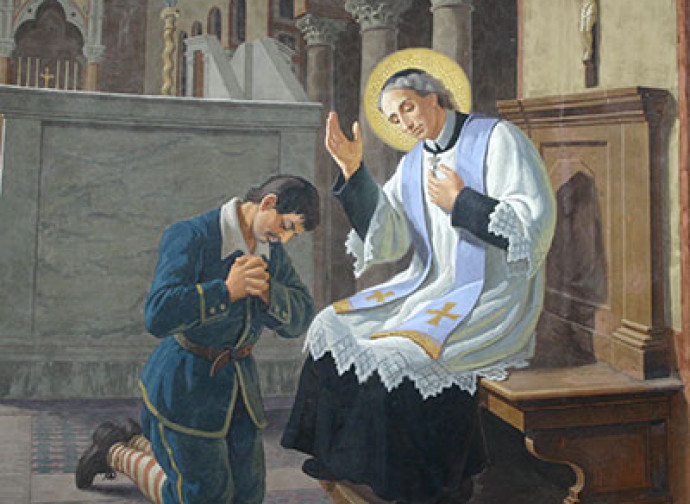Saint John Baptist de' Rossi
He became popular because of the extraordinary length of time he dedicated to the sacrament of Confession.

Although the fear of epileptic fits had kept him away from the confessional for a long time, Saint John Baptist de' Rossi (1698-1764) became popular because of the extraordinary length of time he dedicated to the sacrament of Confession. Born in the province of Alexandria, in Piedmont, the last of four children, he was orphaned of his father when he was just 12 years old. Shortly afterwards he also lost his brother. At the age of 13 he moved to Rome where he studied with the Jesuits, then devoted himself to the study of philosophy and theology.
During this period he began to suffer from severe epileptic fits, which put his dream of becoming a priest at risk. In 1721 he obtained a canonical dispensation and was able to wear the cassock at only 23 years of age, thanks to the speed with which he completed his studies, due to his exceptional intelligence. He founded the Pious Union of Secular Priests (which in the following century would be led by the future Pius IX, the pope who beatified him), and pushed himself in various ways: he helped homeless women find a hospice, went to comfort the sick in their homes, and taught young people the truths of faith and morals. Among the Romans he became known as a second Saint Philip Neri (1515-1595). His cousin Lorenzo, a canon at the ancient Basilica of Santa Maria in Cosmedin, wanted him as an assistant, with the intention of making him his successor: John Baptist, though tearfully, accepted.
His cousin then suffered a severe stroke, after which he became intractable. He came to attribute to John Baptist the cause of his suffering and, in fits of rage, would hurl his medicine bottles at him so violently that not infrequently the saint would emerge from the room with a bleeding head. But the good priest always stood by his family member until he died.
In 1737 he became canon in Santa Maria in Cosmedin, donating to the poor the proceeds from the sale of his cousin's house. A couple of years later, encouraged by a friend and advised by a bishop (who told him that the confessional was an integral part of his vocation), he requested and obtained the faculty to confess.
The faithful queued up to confess to him. However, he was not spared other tribulations, caused by the rancorous attacks of a canon who accused him of having lied to obtain the papal dispensation. John Baptist became ill with the sorrow caused by the unjust accusation. But even in this situation he did not lose his charity and several times visited that priest, who in turn had fallen ill. In 1748 the saint's health deteriorated, but he continued to carry out his ministry, celebrating Mass, hearing confessions and even going to seek out souls in taverns. He spent most of his last year and a half in bed, returning to the house of the Father on 23 May 1764. He was canonized by Leo XIII on 8 December 1881, the day of the Immaculate Conception. A biography of the saint was written by the English author Elizabeth Herbert.
